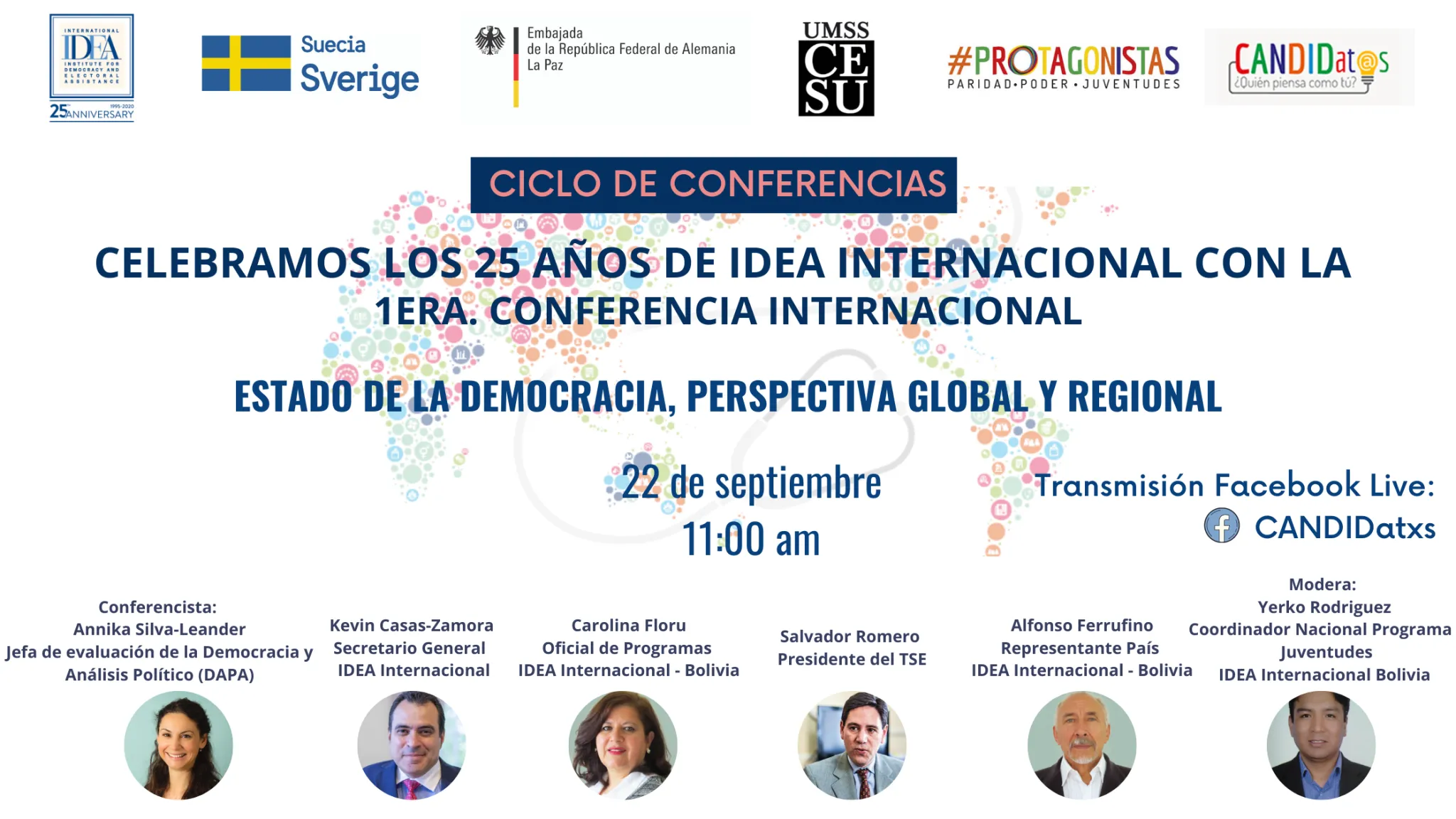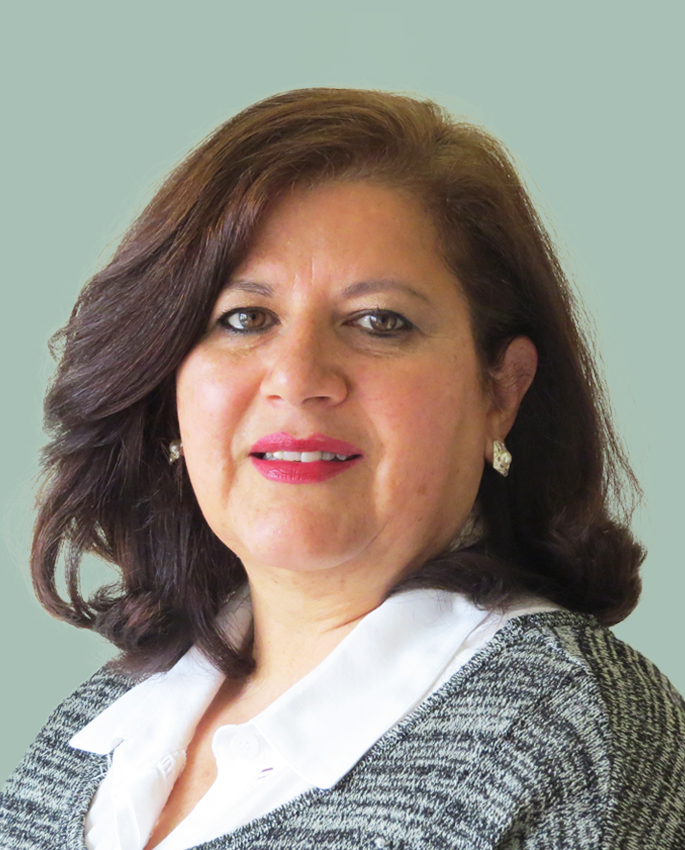Bolivia Commemorates 25 Years of International IDEA

The state of democracy in 163 countries around the world, the encouraging and worrying trends and the challenges faced by governments and peoples in guaranteeing the rule of law and human rights are some of the components of the report titled: “The State of Democracy, from a Global and Regional Perspective in 2020-2021”, which was prepared by International IDEA, and presented on Tuesday, 22 September 2020, through a videoconference arranged by members of the institute based in Bolivia.
Este artículo está disponible en español.
The conference is the first of ten to be held through December to commemorate 25 years of work performed by the International Institute for Democracy and Electoral Assistance (International IDEA), an intergovernmental organization based in Stockholm, Sweden, whose mission is to promote and strengthen democracy around the world.
Dr Kevin Casas-Zamora, Secretary-General of International IDEA, and Dr Salvador Romero, Chairman of Bolivia’s Supreme Electoral Tribunal (TSE), were entrusted with the opening of the event. Both agreed on the risk posed to democracy in various countries across the globe as a result of a number of factors, including the COVID-19 pandemic, but also expressed optimism that the situation will improve.
“International IDEA came into existence at a very different point in time, during which there was potential for democracy to expand throughout the world. Evidently that has changed and we find ourselves, by and large, experiencing a moment of pessimism about the state of democracy, but there are also reasons for optimism", noted Dr Casas-Zamora pointing to the efforts being made by countries to raise democratic quality indices, and citing the case of Bolivia as an example because of its inclusion of women in politics.
Dr Romero, in turn, praised the work of International IDEA, in setting itself as an "organization with a lucid outlook on the challenges to democracy in the present day. International IDEA shows that it is possible to work with a solid commitment to democratic values, and that democracy can and should be improved.
THE REPORT
The report was presented by Dr Annika Silva-Leander, Head of International IDEA's Democracy Assessment and Policy Analysis (DAPA) Unit. In a detailed presentation of the findings and the qualitative analysis developed by DAPA, before and during the pandemic, Dr Silva-Leander explained that five attributes encapsulate the measurement indicators, and that these are: Fundamental rights, Representative government, Participation, Checks on government and an Impartial administration.
With reference to Latin America and the Caribbean, the report devotes a special chapter to this region, highlighting that "it has the third best democratic performance in the world, after North America and Europe.
The document points out that, despite the considerable progress made in terms of democracy, the region faces a number of challenges that threaten its democratic landscape. The persistence of social inequalities being one of them.
Furthermore, regarding Bolivia, Dr Silva-Leander expressed that the country is among a group of nations with average levels of democracy. Although its score is high in terms of indicators such as electoral participation and local democracy, it has a poor score when it comes to judicial independence. "Its top scores are much higher than the average of other countries, but it is among the countries with the lowest judicial independence."
In addition, she indicated that after the 2019 (annulled) election, the data shows that Bolivia "had suffered a decline" noting that, "before that (event), Bolivia had fairly high levels of representative government.“ During the round of questions and answers, she expressed her certainty that with the upcoming election on 18 October 2020, the panorama would recover.
International IDEA’s Senior Adviser in Bolivia, Mr Alfonso Ferrufino, thanked the international cooperation agencies for the support provided that allows the implementation of various projects aimed at strengthening democracy, and valued the participation in the event of the young candidates running for office in the legislature who trained for the Diploma in parliamentary governance, aided by the support of International IDEA, noting that, "a relevant aspect is the emergence of youth as protagonists in the public agenda, and as a factor in the renewal of the political system".
A SERIES OF CONFERENCES
Highly qualified and experienced professionals will participate in the 10 international conferences scheduled to take place between 22 September 2020 and January 2021. Among the issues being addressed are: The Future and Challenges faced by the party system from a national and regional perspective; Grass-roots democracies; Coexistence between central government and indigenous territories; Parity democracy; A Historical perspective and challenges faced by the party system as regards equality; Bolivian political sociology; the Consolidation of rights; and the Development social issues.
In order to view the event held on Tuesday, 22 September 2020, please click here.




